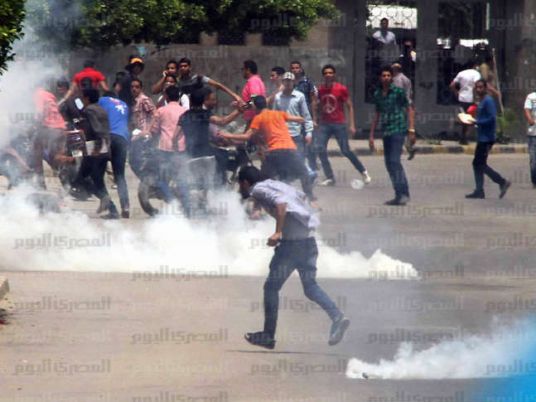
Egyptian universities have seen 58 protests by students on their first week which started 11 October, a report by the Cairo-based International Development Center has revealed.
Universities have seen an average of 10 protests per day, 17 incidents of violence, 27 injuries among students and nine among security agents, according to the center’s Democracy Index. Police arrested 155 university students, six high school students and two preparatory school students during the first week of study, it said,
Eighteen students have been dismissed, 56 others subjected to interrogation due to their involvement in protests in the first week.
Eighteen universities were hit by demonstrations. Al-Azhar universities on top with 12 protests, followed by Cairo and Alexandria with seven protests, Ain Shams and Helwan with four each and Menoufiya with three protests.
As for protests demands, the release of detained colleagues ranked first, being voiced in 27 protests. The enrollment of dismissed students was called for in 15 protests, and objection to security violence and the presence of private security firm Falcon at campuses was the major slogan in ten protests.
Students used seven forms of protest, including 27 protests, 18 marches , eight vigils, two human chains, one class attendance strike, one rally and one road-blocking incident.
Though apolitical and largely peaceful, excessive security violence turned 30 percent of the protests to violence. The report detected 17 incidents of violence at Egyptian universities, ranging from student-student and student-police confrontations to fights and assaults on Falcon’s security equipment. The encounters left 26 injuries among students and nine among security agents.
Haphazard security oppression of students materialized in preemptive arrests of students over charges of planning for protests, according to the report, which said some students were arrested for visiting their detained colleagues.
The report slammed university administrations for handling students as enemies rather than partners, suspending student societies and hiring informants among students to tell on their colleagues, as the report put it. It recommended the opening of channels of dialogue with students to evade a campus uprising.




